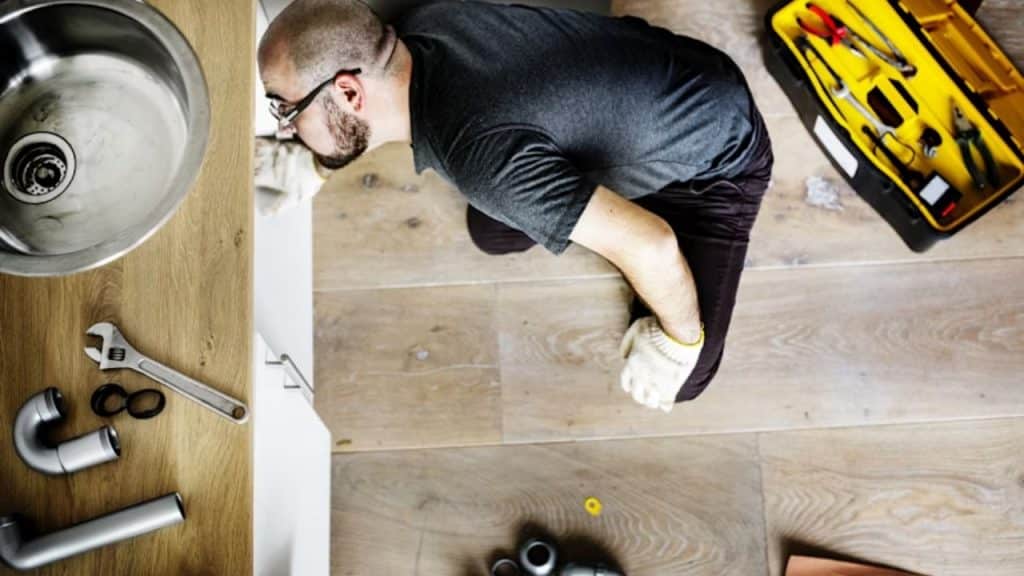
Many men feel marriage rules are often written to favor their wives’ needs while their own go unnoticed. Expectations like always being the “strong one” can silently weigh on men. Over time, these unspoken rules lead to stress, resentment, and a lack of emotional balance. Speaking up is the first step toward healthier, more equal marriages.
Always Paying The Bills

Financial responsibility still falls heavily on men in many marriages, even when both partners earn. Men often suppress the stress of carrying the family’s financial weight. Ignoring this can lead to high anxiety and long term health problems. Couples need more open conversations about shared financial wellness.
The “Fix It” Role

From broken sinks to car troubles, husbands are often expected to handle all repairs. While capable, men sometimes feel pressured into being the household handyman without support. Stress from constant responsibility can affect mental health. Sharing tasks or calling professionals should not be seen as a weakness.
Emotional Labor Gap

Men are expected to absorb their partner’s emotional struggles while rarely being offered the same space. This creates an imbalance where men silently carry their own stress. Modern research shows that bottling emotions leads to higher risks of hypertension and depression. Equal space for emotional expression strengthens marriages.
Parenting Credit Imbalance

Fathers who actively parent are often told they are “helping” rather than just being parents. This language subtly undervalues their role. Men report feeling unseen for their efforts, which discourages involvement. Recognizing fatherhood as equal labor creates healthier family dynamics.
The Provider Identity

Society tells men their worth in marriage is tied to being providers. While ambition is healthy, this belief pressures men to prioritize work over well being. It leaves little space for self care or passions. Redefining masculinity in marriage is vital for mental and physical health.
Lack of Self Care Encouragement

While wives may prioritize spa days or rest, husbands often feel guilty taking time for themselves. This imbalance quietly harms men’s health. Studies show men are less likely to attend regular checkups due to cultural conditioning. Encouraging men to rest and recover should be normalized in marriage.
The Apology Pressure

Men are often expected to apologize first in conflicts, regardless of fault. This dynamic keeps peace but builds silent resentment. Research links unresolved resentment to higher stress hormone levels in men. Equality in accountability makes arguments healthier and marriages stronger.
Health Neglect for Stability

Many men ignore their own health issues to avoid “worrying” their spouse. This behavior delays treatment and risks long term illness. Marriage should encourage proactive screenings, not silence. Regular checkups reduce risks of heart disease, one of the top killers of men.
Household Chores Double Standard

When men clean, it is often seen as “helping” instead of simply doing their share. This language frames chores as optional for men, which fuels imbalance. It also discourages men from being recognized as equal household partners. Changing language changes perception.
Sacrificing Friendships

Men often sacrifice friendships after marriage because their social time is undervalued. This loss of male bonding leads to isolation, which is linked to poor mental health outcomes. Maintaining friendships helps men lower stress and build resilience. Healthy marriages respect individual social needs.
The Bedroom Standard

Men are expected to be the initiators of intimacy, carrying both physical and emotional responsibility. This can make intimacy feel like a performance rather than connection. Open conversations about needs and timing create healthier sexual relationships. Mutual effort should define intimacy, not one sided roles.
Retirement Sacrifice

Husbands often delay retirement or personal goals to keep financial stability for their family. This self denial comes at the cost of health and personal happiness. Shared retirement planning reduces stress and makes later life more fulfilling. Equality should also apply to long term security.
The Protector Expectation

Men are expected to always “protect” their family, physically and emotionally. While noble, this belief leaves men feeling they cannot express fear or vulnerability. Carrying constant protector energy elevates stress and blood pressure. Shared protection builds mutual trust and reduces hidden strain.
Invisible Mental Health Strain

Mental health struggles in men are often ignored because they are expected to “tough it out.” Marriage should be a safe space to share these battles. Depression in men often shows as irritability, not sadness, which gets overlooked. Awareness prevents silent suffering.
Sleep Sacrifices

Men often sacrifice sleep to handle work, parenting, or household needs. Sleep deprivation weakens immunity, increases stress, and impacts long term heart health. Couples should prioritize balanced rest schedules. Healthier husbands lead to healthier marriages.
Career Pressure Dynamics

Men are pressured to choose higher paying jobs over passion driven ones “for the family.” While supportive, it can create lifelong dissatisfaction. Encouraging men to pursue careers aligned with their purpose benefits family happiness long term. Emotional well being is just as valuable as financial gain.
Stress Without Outlets

Men’s stress outlets like sports, gym, or hobbies are often labeled as “selfish.” Suppressing healthy outlets leads to burnout and even physical illness. Science shows regular physical activity lowers stress hormones significantly. Marriages thrive when both partners protect each other’s outlets.
Overlooked Gratitude

Men often feel their everyday efforts in marriage are taken for granted. Without appreciation, silent frustration grows. Small acknowledgments go a long way in reducing stress and building stronger bonds. Gratitude creates healthier marriages for both partners.
Redefining Partnership

Marriage should not be about outdated rules but about shared responsibility and respect. When men’s health, emotions, and contributions are valued, both partners thrive. Equal partnership leads to happier homes and longer, healthier lives. True marriage success comes from rewriting the script together.






Ask Me Anything